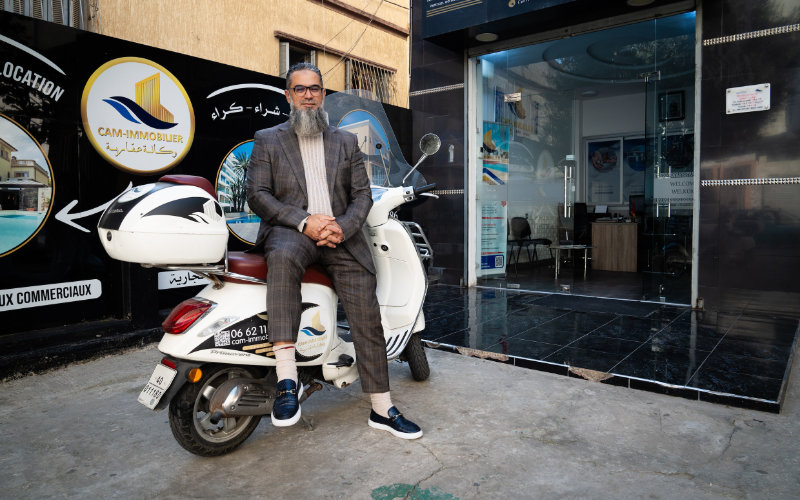Moroccan-Dutch Immigrants Return to Morocco, Citing Changing Climate in Netherlands

The Kandinsky cafe-restaurant, a trendy and modern place in the city of Tangier, is buzzing with activity. The atmosphere is lively, the conversations animated. One detail catches the eye: the Dutch language resounds, whether in the exchanges between customers or on the menus. Here, no tourists, but Dutch people of Moroccan origin, whose parents or grandparents had once left Morocco for the Netherlands. They are now making the journey in the opposite direction.
Among them, Hassan El Yazghe, 58, spent most of his life in Amsterdam, where he worked in a bank. His father, who arrived in the Netherlands as a migrant worker, had been well received, as people were still curious about migrants at the time, he says. The climate has changed since then. "Under Rutte, it was already not great for Moroccans, and with the current government, it’s even worse. You always remain the foreigner. People have had enough. Those who can, leave," he explains to Rouw.nl. He notes, during his regular visits to his mother who remains in the Netherlands, that the country has become more hostile.
This feeling of exclusion in the Netherlands is shared by many Dutch people of Moroccan origin. According to a study by the Central Bureau of Statistics (CBS), 14% of them emigrated between 1995 and 2017, compared to 6% of people of Dutch origin. Researchers from the Erasmus University of Rotterdam, Warda Belabas and Petra de Jong, have identified this feeling of exclusion as one of the main motivations for this migratory movement, coupled with the quest for a space to be fully oneself.
To read: article 111827
Tangier, with its long beach, immaculate streets and dynamic port, offers an attractive living environment. For a growing number of Dutch people of Moroccan origin, it is also a place where they feel freer. Mohamed Naji, a real estate agent, testifies to this. He left Rotterdam for Tangier in 2012. He is receiving more and more calls from Belgian or Dutch families wishing to settle in Morocco. "People want to leave because of the harshness of the Netherlands. They tell me they no longer feel safe. There is a constant fear. Look at the recent riots in Amsterdam. Politics immediately blamed the Moroccans. It’s just ’us/them’ now. It’s a shame," he confides.
Naji, who arrived in Rotterdam at the age of four, remembers a different era. "I never felt like ’the foreigner’. But that’s no longer the country of Wim Kok and Ruud Lubbers," he says. "Since the September 11, 2001 attacks, something has changed," he continues. "Suddenly, I had to distance myself from something that had happened thousands of kilometers away. In the street, people were giving me the finger. They saw my beard and drew a conclusion. Then they would lower their window and yell: ’Osama Bin Laden!’ I started to understand: it’s not going in the right direction. I don’t want my children to grow up in this country."
Nordin Dahhan, a 66-year-old pediatrician, also chose to settle in Tangier. Since then, he has savored the peace of no longer receiving "blue letters," a reference to Dutch administrative mail. After making round trips for two years, he opened his clinic in 2015, where six pediatricians now work. "I don’t miss anything," he says. "The Netherlands is no longer the Netherlands," he concludes.
Related Articles
-

Moroccan Workers Protest Unpaid Millions at Saudi Prince’s Palace in Tangier
3 September 2025
-

Ryanair Slashes Spanish Routes, Shifts Focus to Morocco and Italy Amid Airport Tax Hike
3 September 2025
-

Morocco Bolsters Air Force with 10 Cutting-Edge Caracal Helicopters from Airbus
3 September 2025
-

Marrakech Rattled: 4.5 Magnitude Aftershock Strikes as Reconstruction Efforts Forge Ahead
3 September 2025
-

Morocco’s High-Speed Rail Revolution: Casablanca Undergoes Massive Transformation for TGV Expansion
3 September 2025